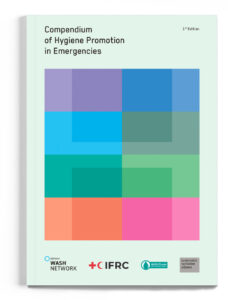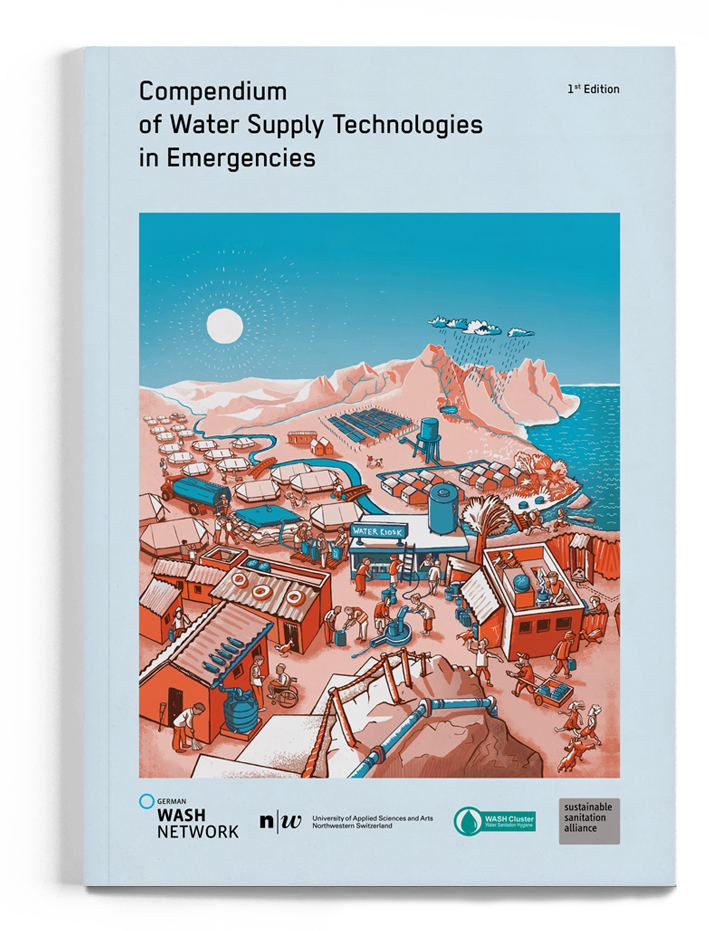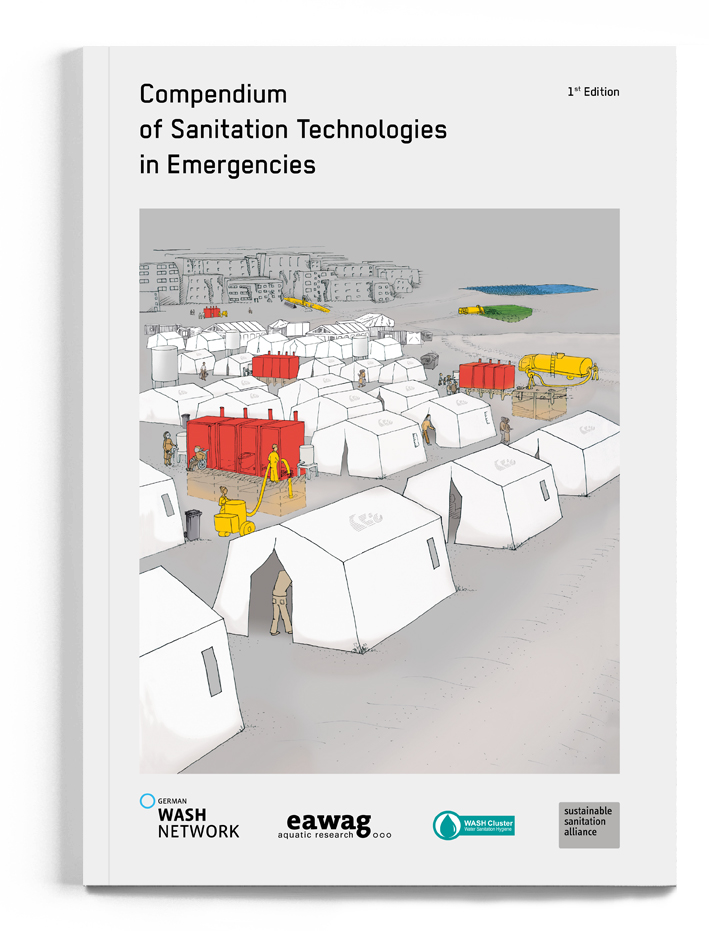Political dialogue event
Background
The 2030 Agenda is facing its mid-term and the challenges under SDG 6 continue to be enormous. The Sanitation and Hygiene targets 6.2 and 6.3 are most lagging behind, with 3.6 billion people or 46% of the world’s population not having access to safely managed sanitation services. Still about 80% of the world’s wastewater is discharged untreated into water bodies. The issue deserves urgent attention, as children, women and the most marginalised are most affected from this lasting crisis. While the world needs to quadruple the current rate of progress to reach the SDG 6.2 target, the political will to make sanitation a priority is still missing. High need meets limited demand, due to a lack of knowledge and awareness in the affected population and the prevailing taboo amongst decision makers.
The COVID-19 pandemic has put a spotlight on the importance of strengthening of global health, including WASH. However, in times of multiple crises and increasing fragility, even more effort is required to sustain – let alone increase – the much-needed momentum for SDG 6.2. Germany has been a substantial contributor to progress in the sanitation sector, including the initiation of the respective MDG target, the adoption of the human rights on water and sanitation and its substantial contributions to the Sustainable Sanitation Alliance, just to name a few. The new German Government has decided to expand its commitment to WASH, in line with its priorities of global health, food and nutrition security, gender equality and inclusion and climate resilience. For this reason, we would like to invite you to an informed discussion on how the German WASH Network and Germany can lead the way towards 2030 as a champion for sanitation and hygiene, making a significant contribution to achieving the SDGs.
Event Description
The event will open with welcoming remarks by Luise Amtsberg, Federal Government Commissioner for Human Rights Policy and Humanitarian Assistance. A short film provides a brief overview of key achievements and highlights of Germany’s contribution to the sanitation and hygiene relevant SDG targets. An opening address by Dr. Uschi Eid, former Chair of the United Nations Secretary-Generals’ Advisory Board on Water and Sanitation (UNSGAB) shall reflect the relevance of the event in times of multiple crisis and at the mid-term of the Agenda 2030.
Renowned international stakeholders provide an insight into the status and challenges of the sector and what is required going forward. Building upon these inputs, a roundtable of policy makers and sanitation champions will discuss the potential role and contributions of Germany with regard to current political processes, global trends and hot topics. In three workshops, input will be collected from all participants in reflection of what has been previously discussed and with regard to the following question: How can the Sanitation and Hygiene sectors contribute to and create synergies with
- global health & pandemic prevention,
- climate resilience & food and nutrition security,
- leave no one behind & feminist development cooperation?
Parliamentary State Secretary of the Federal Ministry of Economic Cooperation and Development (BMZ), Dr. Bärbel Kofler will close the event by commenting on the identified synergies in consideration of the comparative strengths and potentials of a stronger German contribution.
| Event | Location | Date | Time |
Language |
| The Future of Sanitation and Hygiene | Berlin, Germany (bUm, Paul-Lincke-Ufer 21) | 11 Oct, 2022 | 9:30 – 15:30 (CEST) | English |
Objectives
The meeting strikes a balance between political dialogue, working time to inform current processes and exchange for mutual learning.
- Stock-taking of German and key international contributions towards sanitation and hygiene
- Generation of momentum and political will for acceleration of progress towards 2030, including Germany’s contribution towards the 2023 UN Water Conference
- Identify possible contributions of Germany for strengthening WASH as essential elements of global health and pandemic prevention, gender equality and leave no one behind, and climate resilience and food- and nutrition security.
- Foster better collaboration between different German stakeholders, utilising comparative advantages
- Reinforce collaboration between German and international actors
Speakers
Confirmed and requested speakers include the following policy/decision makers and international sanitation & hygiene champions:
- Dr. Bärbel Kofler, Parliamentary State Secretary to the Federal Minister for Economic Cooperation and Development (BMZ)
- Luise Amtsberg, Federal Government Commissioner for Human Rights Policy and Humanitarian Assistance
- Nathalie Olijslager-Jaarsma, Ambassador & Programme Director UN 2023 Water Conference, Ministry of Foreign Affairs of the Netherlands
- Dr. Ursula Eid, former Parliamentary State Secretary, BMZ & former Chair of the United Nations Secretary-General’s Advisory Board on Water and Sanitation (UNSGAB)
- Claudia Pragua, Head of Division „Water, Sanitation and Hygiene“, Federal Ministery for Economic Cooperation and Development (BMZ)
- Graham Alabaster, Chief of Sanitation and Waste Management at the Urban Basic Services Branch of UN-Habitat
- Kate Medlicott, Team Leader – Sanitation and Wastewater, Water, Sanitation, Hygiene and Health Unit, WHO
- Mohamed Abdikadir, Executive Director at Organization for Welfare and Development in Action Ethiopia
- David Kaelin, Urban Services and Policy Advisor, Water and Habitat Unit, ICRC
This event will be facilitated by Thilo Panzerbieter (Chair, German WASH Network) and Dr. Ursula Eid.
Audience
Representatives of German Civil Society, German Government and Implementing Agencies, SuSanA members and other influential WASH Actors.
Convener







